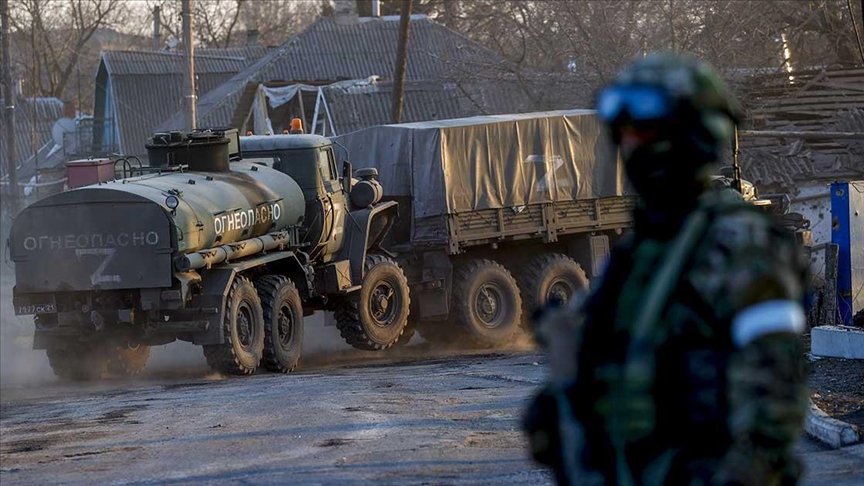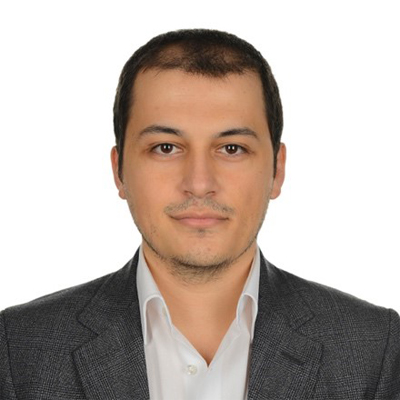Russia’s intervention in Ukraine took the Western Balkan countries by surprise, as did the rest of the world. The new geopolitical reality that Europe awoke on February 24th inevitably had major political and economic consequences for the Western Balkan region, with which the European Union has had an ambiguous relationship for decades, and paved the way for new ones.
Russia frequently expresses its common connections with public diplomacy studies and media narratives in the Balkans, where it has important historical, cultural and religious connections. But especially recently, Russian hard power undermines soft power efforts often. The war in Ukraine refocused NATO on Russian threats in Europe and rekindled the stalled hopes of Euro-Atlantic integration of many Balkan countries.
Russian President Vladimir Putin continues his renewed campaign for global influence meanwhile Russia is seeking an increasingly presence in the Balkans, hoping to slowdown the region’s integration into Euro-Atlantic institutions and tarnish the image of Western-style democracy in Southeast Europe.
There are fears in the West that tensions involving Russia could spill over to the west of the former Soviet borders and escalate into a wider conflict, and as a result conflicts between Russia and the West could confuse the Balkans, as it done during the Cold War. In this context, the possibility that the Balkans, and in particular countries that are not part of NATO such as Serbia, Kosovo and Bosnia and Herzegovina, could potentially become a new crisis zone, where superpowers will fight for their own influence, is getting stronger.
Russia’s most important ally Serbia in the region
Serbia is a very important ally of Russia in the Western Balkans, and this causes the majority of Russia’s ideas and work to be directed to Belgrade. The two countries signed a strategic partnership declaration in 2013, followed by a military cooperation agreement. Serbia became an observer to the Collective Security Treaty Organization (CSTO) military alliance in 2013 and participated in military exercises with Russia and other CSTO partners. In 2015, Russia, Belarus and Serbia began to hold joint military exercises called “Slavic Brotherhood”. The exercise, hosted by Serbia in 2016 and 2019, was last performed in 2021 in the Novorossiysk region of Russia on the Black Sea coast.
Western officials, in the meantime, accused Putin of fomenting a wave of nationalism in the Balkans through this Slavic alliance. Such a wave of nationalism could rekindle armed conflict over Kosovo, which separated from Serbia in 2008, or cause political trouble in NATO members North Macedonia and Montenegro. Although Moscow has repeatedly denied these claims of nationalism and influence, it has called on Bosnia and Herzegovina, Serbia and Kosovo to never join NATO.
The increasing dynamics in Russia’s relations with Serbia also increases its influence on the Serb-Slavic communities in the region. According to strategies that accept the idea that the destabilization of the region will destabilize the whole of Europe, this effect seems quite beneficial. The behavior of Russia, which does not hesitate to show that it can destabilize the weak parts of the EU and NATO, encourages the Serbian member of the Presidency of Bosnia and Herzegovina, Milorad Dodik, and the Autonomous Republika Srpska. Russia’s annexation of Crimea in 2014 inspired Dodik, then President of the Autonomous Republika Srpska, to seperate from Bosnia and Herzegovina. In this context, Moscow’s security assistance to the Autonomous Republika Srpska is increasing, but this aid officially contradicts the spirit of the Dayton Agreement, which forbids an independent Bosnian Serb army.
Euro-Atlantic and Russian struggle over the Balkans
As one of the last regions of Europe not yet fully integrated into Euro-Atlantic structures, the Balkans presents a clear target for Russian influence operations aimed at slowing or even hindering EU and NATO enlargement. By disrupting this expansion in the Balkans, Moscow hopes to prevent sophisticated discussions about the integration of Georgia, Ukraine, or any former Soviet state into these structures. In this sense, for Russia, the Balkans can be seen as a tool used to divert attention from the Russian hinterland and even to influence European security and economic institutions. As far as security ties are concerned, Moscow’s efforts in the Balkans primarily focus on Serbia, the only country that have no desire to formally join NATO in the region, and the Autonomous Republika Srpska.
The peoples of the region fear that Russia will try to destabilize the Balkans and insist that these states be integrated into the EU and NATO as quickly as possible. However, despite the seeming urgency, Europeans consider these countries’ problems of poverty, corruption and social and foreign policy are far from meeting the Union’s criteria, and making their dreams of rapid accession impossible.
Russia’s activities in the Western Balkans, which we can characterize as an example of a hybrid threat, affect the level of the discussion. The Russian nationalist motorcycle gang called Night Wolves and the allegedly reconstituted Balkan Cossack Army appear as the organizations with participants from Serbia, the Autonomous Republika Srpska, Montenegro, Macedonia, Bulgaria and even Greece, as well as Russia and Belarus. Although their number is assumed to be a little over a thousand, there are efforts to build a resistance against everything that is against the Orthodox Slavic culture and identity. So much so that the “foreign West”, which includes Europe that is generally assumed of cover these states, takes its place in the face of this resistance. One unit of the Night Wolves, that in motorcycle gang form but a paramilitary militia group under Putin’s command, even held a parade in front of the Russian ambassador and Chinese diplomatic representatives in Banja Luka, the capital of the Autonomous Republika Srpska, on 9th January 2022.
Will the Balkans powder keg explode “again”?
For Russia, the Balkans, does not have the strategic vital capacity as the former Soviet territory like Georgia and Ukraine to cause NATO or the EU to use force to prevent its expansion into the region. But for the Kremlin, the unique importance of the Balkan states lies in the arenas in which Russia can exert power and influence in Europe to annoy the West in general. Regional policies of Vladimir Putin, who is discussed to have the goal of destroying the Western-US-centered international order established after the Cold War to rebuild the “Russia-Soviet” geopolitical system, are risky but consistent with his approach to dealings with the West.
It is possible that Russia will use the Baltic or the Western Balkans, or both, to escalate tensions and expand the crisis globally for the transformation or at least revision of the international order. The prolongation of the war in Ukraine increases the possibility that the Kremlin will take these steps and spread concrete tensions to the Western Balkans. Because the new tension areas will be in the interest of the Russian Federation.
Western Balkan societies grapple with incomplete state division and ethno-religious tensions, meanwhile they are going through a massive financial and economic crisis and their enthusiasm for joining the EU is waning. In addition to the mentioned effects of Russia in the Euro-Atlantic integration of the Balkans, the difficulties caused by the own socio-economic and political conditions of the region prolong the process. The European Commission’s enlargement plan to include the Western Balkan countries envisages that all six applicants will be able to join as EU members after 2025. The prolongation of the region’s EU accession process, on the one hand, opens space up for nationalists such as Milorad Dodik, on the other hand, it allows Russia, China and the Gulf states to use the anger towards Brussels and develop their own agendas in the region.
When the perception that the political elites of the region do not care about democracy, human rights and freedom of expression, together with the unstable and unreliable images of the economic elites like the Russian oligarchs, the West’s faith in the region is broken and may cause it to seek different actors. The region, which is an important testing ground in the establishment of the current international order, continues to be a laboratory for new searches.
This article has been published in Turkish at Anadolu Agency on April 6, 2022.









